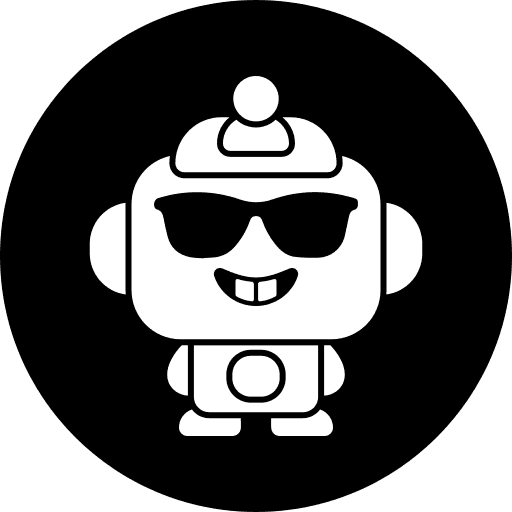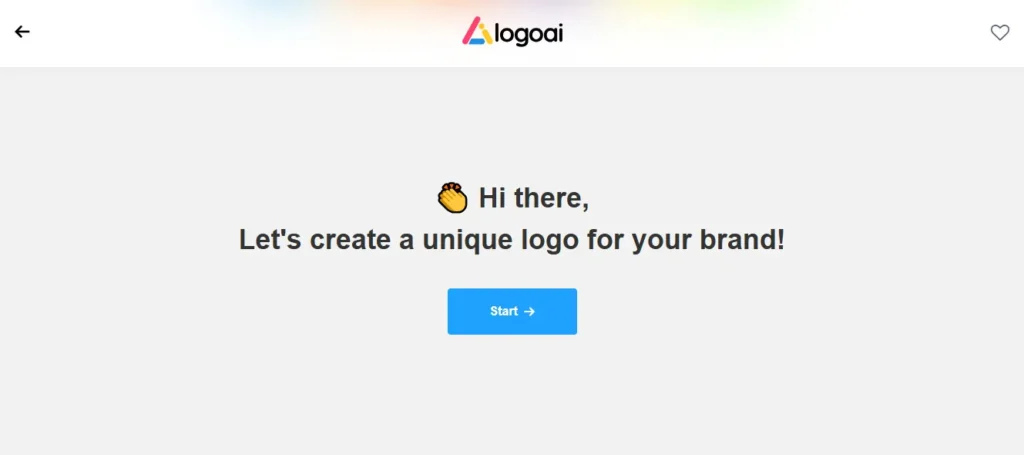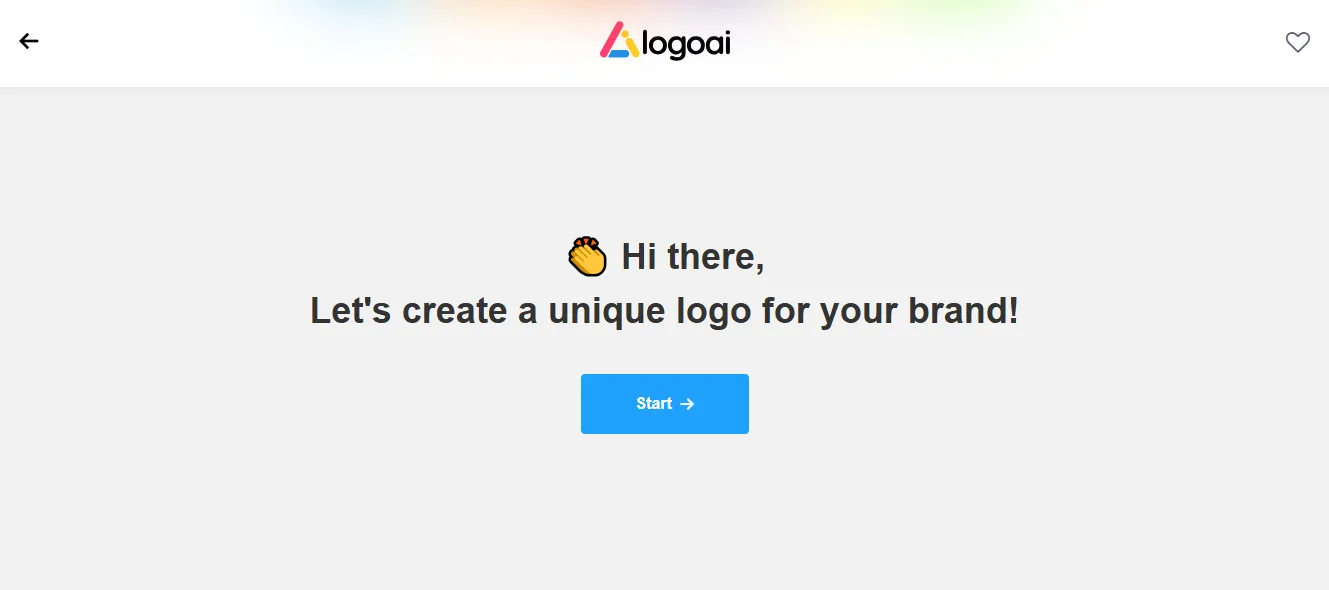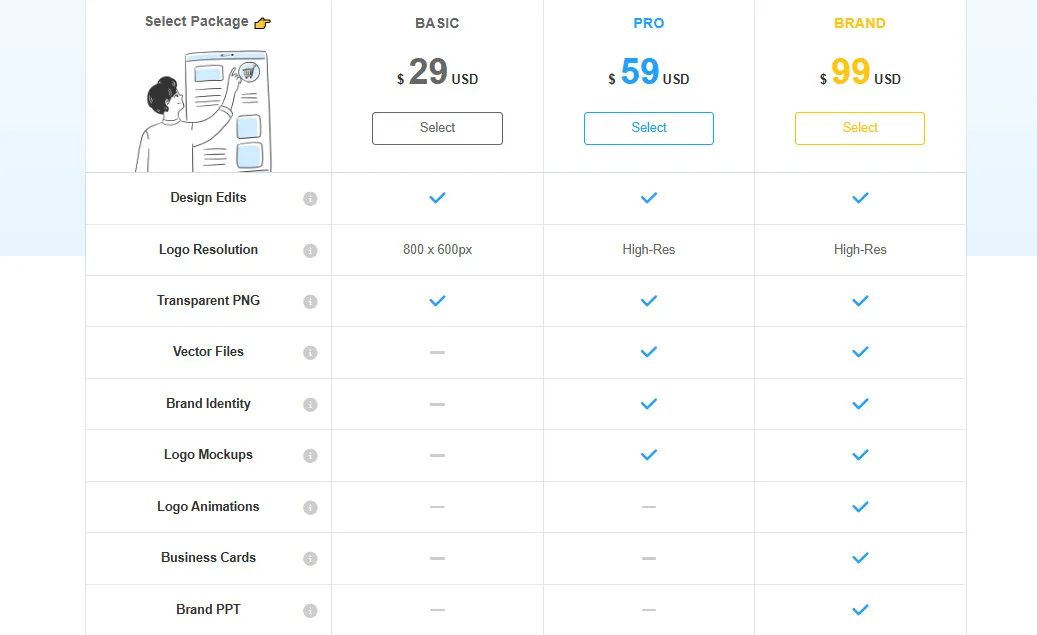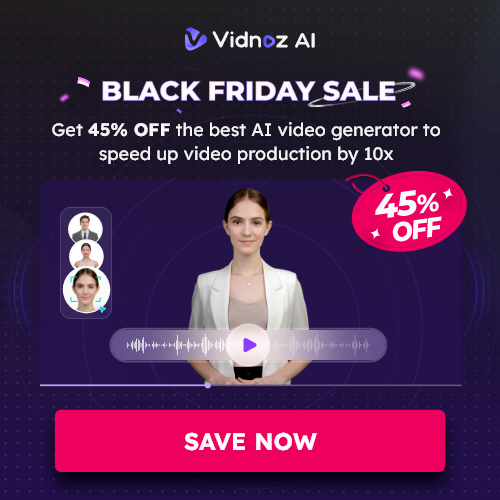In today's fast-paced digital landscape, establishing a strong and memorable brand identity is no longer a luxury but a necessity for businesses of all sizes. A well-designed logo serves as the cornerstone of this identity, instantly communicating a company's values, mission, and uniqueness.
Table of Contents
ToggleHowever, the traditional process of logo design—involving lengthy consultations with designers, numerous revisions, and significant financial investment—can be a daunting hurdle for startups, small businesses, and entrepreneurs operating with limited resources and tight deadlines. This is where the burgeoning field of AI-powered design tools steps in, democratizing access to professional branding.
Among the forefront of these innovative solutions is LogoAI. As verified directly from its official website and substantiated by extensive industry research in 2025, LogoAI's primary function is to serve as an AI-powered logo maker and comprehensive brand-building platform. It's designed to empower businesses to effortlessly create professional logos, develop cohesive visual identities, and automate brand promotion with on-brand content.
Its target audience is broad, encompassing startups, small businesses, entrepreneurs, and even established companies seeking efficient, affordable, and high-quality branding solutions. In this in-depth LogoAI review, we will explore how this cutting-edge AI tool leverages artificial intelligence to transform the often-complex process of brand creation into a streamlined, user-friendly experience.
We will dissect its core features, from its intelligent logo generation engine and seamless customization options to its robust brand identity kit and automated brand center. We'll weigh its compelling pros against its potential cons, delve into its diverse use cases (including some less common applications), examine its integration capabilities, and compare it with leading alternatives such as Logome AI, Looka, and AI Magicx.
By the end of this review, you will have a clear understanding of LogoAI's capabilities and whether it aligns with your specific branding needs.
What is LogoAI?
LogoAI, founded at is a state-of-the-art AI-powered logo maker and comprehensive brand-building platform. Its core purpose, as articulated on its official website, is to enable businesses, regardless of their size or design expertise, to efficiently create professional logos and establish a consistent visual brand identity.
LogoAI utilizes advanced artificial intelligence to analyze user input and design principles, generating a wide array of unique and visually appealing logo concepts in a matter of minutes.
Beyond mere logo creation, LogoAI functions as an all-in-one branding solution. It extends its AI capabilities to automatically generate a suite of matching brand assets, ensuring consistency across all marketing touchpoints.
This automation significantly reduces the time and cost traditionally associated with professional branding, making high-quality design accessible to a broader audience.
Key functionalities of the platform, as verified from its official website and through contemporary reviews from 2025, include:
AI-Driven Logo Generation:
- Intelligent Design Engine: Users provide their company name, an optional slogan, and select their industry (e.g., technology, food, retail) and preferred style (e.g., minimalist, modern, abstract). LogoAI's “SMART AI engine” then processes this information, understanding logo data and design best practices, to generate hundreds of unique logo ideas.
- Diverse Concepts: The AI doesn't rely on fixed templates but rather creates new and unique designs, offering a wide variety of symbols, layouts, and stylistic approaches for inspiration.
- Example: A user creating a logo for a new “eco-friendly coffee shop” inputs their business name, selects “Food & Beverage” and “Eco” as keywords. LogoAI generates various concepts featuring coffee beans, leaves, earth symbols, and modern typography in earthy tones.
Seamless Customization and Editing:
- Intuitive Editor: Once an initial logo concept is chosen, users can dive into a user-friendly editor to fine-tune every aspect of the design.
- Extensive Customization Options: This includes changing fonts (from a vast library), adjusting colors (with palette suggestions or custom HEX codes), modifying symbols or icons, altering layouts, and tweaking spacing. This ensures the final logo precisely matches the user's vision.
- Unlimited Edits: With paid plans, users typically receive unlimited edits even after purchase, allowing for continuous refinement.
- Example: After selecting a logo concept, a user decides to change the primary green to a darker shade, switch the sans-serif font to a more elegant serif, and slightly resize the coffee bean icon within the design.
Comprehensive Visual Identities & Brand Kit:
- Matching Brand Assets: Beyond the logo itself, LogoAI automatically generates a full suite of branded materials that align perfectly with the chosen logo's style, colors, and fonts.
- Diverse Kit Contents: This includes:
- Logo Mockups: Real-life mockups showing the logo on various items (e.g., T-shirts, coffee mugs, signage) for visualization.
- Business Card Designs: Dozens of customizable business card templates pre-filled with the new logo and brand colors.
- Social Media Graphics: Pre-sized versions of the logo for major social media platforms (Facebook, Instagram, LinkedIn, YouTube, Twitter) and templates for social media posts and covers.
- Word & PowerPoint Templates: Branded templates for official documents and presentations.
- Letterheads & Email Signatures: Professional stationery designs.
- Favicon: A small icon for website browsers.
- Example: A startup finishes its logo and immediately has access to business card designs, social media profile pictures, and branded presentation slides, all perfectly consistent with their new visual identity.
Brand Center for Consistency:
- Centralized Hub: LogoAI provides a “Brand Center” or “Brand Kit” that acts as a one-page resource containing all essential brand guidelines.
- Key Information: This includes the exact color palettes (HEX, RGB codes), typography styles (font names, sizes), and logo usage guidelines, ensuring brand consistency across all applications.
- Example: A marketing team can access the Brand Center to quickly find the official brand colors and fonts for a new campaign, ensuring every piece of marketing collateral maintains a cohesive look and feel.
High-Resolution File Downloads:
- Versatile Formats: Users can download their final logos and branded assets in various high-resolution formats suitable for both digital and print applications. These commonly include:
- Vector Files: SVG (Scalable Vector Graphics) and EPS (Encapsulated PostScript) for unlimited scaling without loss of quality.
- Raster Files: High-resolution JPG (for web) and transparent PNG (for versatile use on different backgrounds).
- PDF: For print and shareable documents.
- Variations: Includes dark logo, white logo, and colored background logo versions.
- Example: A user needs their logo for a large billboard print, so they download the SVG file. They also need a transparent PNG for their website favicon and a JPG for their email signature.
API for Developers and Agencies:
- Integration Capabilities: LogoAI offers a Logo API (and a Lite version) for developers and agencies. This allows them to integrate LogoAI's logo generation and customization capabilities directly into their own platforms or workflows.
- Example: A website builder platform integrates the LogoAI API, allowing their users to generate and embed professional logos directly within the website creation process.
LogoAI positions itself as an accessible, efficient, and comprehensive solution for anyone looking to establish a professional brand identity quickly and affordably, without compromising on design quality.
How to Use LogoAI Tutorial
Pros and Cons LogoAI
Top 5 Key Features LogoAI
AI-Driven Logo Generation Engine: This is the foundational feature of LogoAI, setting it apart from traditional design processes. It leverages artificial intelligence to understand design principles and user preferences, generating a vast array of unique logo concepts in seconds.
- Smart Algorithm: Users input their business name, an optional slogan, and select their industry (e.g., “Tech,” “Healthcare,” “Fashion”) and preferred style (e.g., “Modern,” “Classic,” “Abstract”). The AI processes this information, drawing from a vast dataset of successful logos and design trends, to produce tailored suggestions.
- Quantity and Diversity: Instead of a few templates, the AI generates hundreds of distinct logo ideas, offering variations in layout, typography, iconography, and color palettes. This provides users with a broad spectrum of options to choose from.
- Intelligent Symbol Generation: The AI can generate relevant symbols or combine text with abstract shapes that align with the brand's essence, often surprising users with creative and appropriate concepts.
- Example: A new bakery owner inputs “The Daily Crumb” as the name, “Freshly Baked Goods” as the slogan, and selects “Food & Beverage” for the industry. LogoAI rapidly presents dozens of options, ranging from playful illustrations of bread and wheat to minimalist typographic designs, all in colors appropriate for a food brand.
Comprehensive Brand Identity Kit & Brand Center: Beyond just the logo, LogoAI provides a full suite of matching branded assets, establishing a cohesive visual identity across all platforms. This automation is a significant time-saver.
- Automated Asset Generation: Once a logo is finalized, LogoAI automatically applies its colors, fonts, and style to various brand collateral.
- Diverse Assets Included: This typically comprises:
- Business Cards: Customizable designs that align with the new logo.
- Social Media Graphics: Pre-sized logo versions and templates for profile pictures, cover photos, and posts on platforms like Facebook, Instagram, LinkedIn, and YouTube.
- Mockups: Realistic visualizations of the logo on merchandise, signage, and digital interfaces.
- Word & PowerPoint Templates: Branded document templates for professional presentations and official communications.
- Letterheads & Email Signatures: For consistent professional correspondence.
- Centralized Brand Center: This acts as a single source of truth, providing all necessary brand guidelines: exact color codes (HEX, RGB), font names, and logo usage rules (e.g., clear space, minimum size), ensuring consistency for any future marketing efforts.
- Example: A small consulting firm uses LogoAI to create its new logo. Instantly, they have professional business cards ready for print, social media banners for their LinkedIn page, and a PowerPoint template for client pitches, all perfectly aligned with their new brand guidelines.
Seamless Customization and Intuitive Editor: LogoAI offers robust editing capabilities that allow users to fine-tune every aspect of their chosen logo, ensuring it perfectly matches their vision.
- User-Friendly Interface: The editor is designed for non-designers, featuring a drag-and-drop interface and clear options for modification.
- Granular Control: Users can easily change:
- Colors: Select from pre-defined palettes or input custom HEX codes.
- Fonts: Browse a large library of typefaces and adjust size, spacing, and weight.
- Symbols/Icons: Swap out the AI-generated icon for another from LogoAI's extensive library, or resize/reposition existing elements.
- Layouts: Experiment with different arrangements of text and symbols.
- Live Preview: All changes are displayed in real-time, allowing for instant visual feedback and iterative refinement.
- Unlimited Edits (with paid plans): This crucial feature ensures users can continuously tweak and perfect their logo without incurring additional costs after purchase.
- Example: A musician creates a logo with a guitar icon. They use the editor to change the guitar's color to a vibrant blue, select a more artistic script font for their name, and shift the icon slightly to the left for better balance.
High-Resolution, Versatile File Formats: LogoAI ensures that users receive their logos and branded assets in formats suitable for virtually any application, from web to professional printing.
- Vector Files (Scalable): Provides SVG (Scalable Vector Graphics) and EPS (Encapsulated PostScript) formats. These are crucial because they can be scaled to any size (e.g., a billboard or a tiny favicon) without losing quality or becoming pixelated.
- Raster Files (Web-Ready): Delivers high-resolution JPG files (ideal for web use with white or colored backgrounds) and transparent PNG files (perfect for overlays on images or different colored backgrounds).
- Print-Ready PDFs: Often included for easy printing of documents and marketing materials.
- Variations for Different Backgrounds: Includes versions of the logo optimized for dark backgrounds (e.g., white or light-colored logos) and light backgrounds (e.g., dark or colored logos), ensuring visibility and brand consistency across all uses.
- Example: A new tech startup needs their logo for their website, mobile app, and printed business cards. They download the transparent PNG for their website, the SVG for scalable use on their app, and the PDF for sending to their print shop for business cards.
API Integration for Developers and Agencies: This feature extends LogoAI's utility beyond direct consumer use, making it a powerful tool for larger-scale operations and platform integration.
- Programmable Access: LogoAI offers a Logo API (and a lighter version, Logo API Lite), allowing external applications and developers to programmatically access its logo generation, customization, and asset download functionalities.
- Automated Workflows: This enables businesses to integrate logo creation directly into their own products or services, such as website builders, e-commerce platforms, or marketing automation tools.
- Bulk Generation/Customization: Agencies can use the API to streamline logo generation for multiple clients or to create customized assets in bulk, significantly improving efficiency.
- Example: A web hosting company wants to offer a built-in logo design service to its new customers. By integrating LogoAI's API, new users can create a professional logo directly within the hosting platform's onboarding flow, enhancing the overall user experience and offering added value.
These five core features collectively make LogoAI a powerful and accessible tool for rapid and comprehensive brand identity creation, catering to both individuals and businesses aiming for professional visual representation.
Who Should Use LogoAI?
LogoAI is strategically designed to cater to a diverse spectrum of individuals and organizations who require professional branding solutions with speed, efficiency, and affordability.
Ideal Users:
Startups and Entrepreneurs: New ventures with limited budgets and tight timelines who need a professional logo and foundational brand assets quickly to launch their business.
Small to Medium-sized Businesses (SMBs): Established businesses looking for a cost-effective way to refresh their brand, create new logos for product lines, or expand their branding efforts without hiring a full-time design team.
Freelancers and Solopreneurs: Individuals building their personal brand or creating logos for various client projects, needing quick and customizable solutions.
Bloggers, Influencers, and YouTubers: Content creators seeking a unique and memorable visual identity to stand out in a crowded digital space.
E-commerce Store Owners: Individuals setting up online shops who need a consistent brand image for their products, packaging, and digital storefront.
Non-Profit Organizations: Groups with limited design resources but a strong need for a professional and impactful visual identity to convey their mission.
Graphic Designers (for inspiration/kick-off): While not replacing a designer, LogoAI can be a valuable tool for brainstorming initial concepts, generating a wide array of options quickly, or providing a starting point for client discussions.
Marketing Teams: For rapidly generating mockups, on-brand social media content, or design elements for specific campaigns, ensuring brand consistency.
Uncommon Use Cases:
Event Branding: Quickly creating a unique logo and visual identity for a one-off event, conference, or festival that requires a distinct look.
Personal Branding for Niche Professionals: Beyond typical freelancers, professionals like consultants, coaches, or public speakers who need a distinctive personal brand mark without extensive design investment.
Student Projects & Academic Initiatives: Students or academic groups needing a professional logo for their research projects, club identities, or university presentations.
Side Hustles and Passion Projects: Individuals developing a non-commercial side project (e.g., a podcast, a local community group, a personal art portfolio) who want a polished visual identity.
Prototyping & A/B Testing: Rapidly generating multiple logo variations to A/B test with a target audience before committing to a final design, gathering feedback on visual appeal and brand recognition.
Mockups for Physical Products: Beyond digital mockups, creating logos specifically to visualize on physical products (e.g., custom merchandise, apparel, product packaging prototypes) for market research.
Developing Brand Concepts for Investors: For entrepreneurs preparing pitch decks, LogoAI can quickly generate compelling visual brand concepts to impress potential investors with a strong brand vision.
In essence, anyone who values efficiency, affordability, and professional results in branding, particularly those without extensive graphic design skills or budget, will find LogoAI to be an invaluable asset.
LogoAI Pricing
Joiin offers flexible plans to streamline your multi-entity financial reporting and consolidation:
Joiin offers flexible plans to streamline your multi-entity financial reporting and consolidation:
Disclaimer: Pricing details may change. Visit the official LogoAI website for the latest information.
What Makes LogoAI Unique?
In a competitive market of AI logo generators, LogoAI carves out a distinct position through several unique selling propositions that differentiate it from mere template-based tools.
“SMART AI Engine” – Beyond Basic Templates: While many AI logo generators exist, LogoAI emphasizes its “SMART AI engine” which claims to understand not just data, but also design best practices. This goes beyond simply combining pre-existing icons and fonts.
It aims to generate logos that are not only unique but also professionally sound in terms of balance, composition, and industry relevance. User reviews from 2025 often highlight the creativity and professionalism of LogoAI's initial suggestions, indicating a higher level of AI intelligence in design conceptualization.
True Brand Identity Automation: The most significant differentiator is LogoAI's strong focus on a complete brand identity system. It doesn't just give you a logo; it automatically generates a cohesive suite of branded assets, including business cards, social media kits, Word/PPT templates, and mockups, all perfectly aligned with your chosen logo.
This “one-click brand consistency” approach saves immense time and effort, contrasting with tools that only provide the logo and leave the user to manually create supporting materials.
Dedicated “Brand Center”: The provision of a centralized “Brand Center” is a crucial unique feature for maintaining long-term brand consistency. This acts as a digital style guide, consolidating all essential brand elements—exact color codes, typography, and logo usage guidelines. This empowers businesses to ensure all future marketing and communication efforts remain on-brand, even without a dedicated designer or extensive design knowledge.
Flexibility with API for Developers: While many tools cater to end-users, LogoAI also caters to businesses and agencies through its Logo API. This allows for deep integration into other platforms, offering a powerful B2B solution for those looking to embed logo generation services or automate large-scale branding tasks, something not all competitors prioritize.
Balance of Simplicity and Customization: LogoAI strikes a delicate balance. It's incredibly easy for beginners to generate initial concepts, yet it provides surprisingly robust customization options for fine-tuning. This hybrid approach ensures that while the process is fast and automated, users still have significant creative control to make the logo truly their own, a common pain point with overly simplistic AI tools.
These unique attributes position LogoAI not just as a logo generator, but as a strategic AI-powered brand-building platform that accelerates and streamlines the entire visual identity creation process, making professional branding accessible and consistent for businesses of all sizes.
LogoAI Compatibilities & Integrations
LogoAI is primarily a web-based platform, designed for accessibility and ease of use across various operating systems and devices. Its integration capabilities are primarily focused on providing versatile outputs and offering API access for broader ecosystem compatibility.
Web-Based Platform:
- Accessibility: LogoAI's core functionality operates entirely within a web browser. This means it is compatible with virtually any operating system (Windows, macOS, Linux, Chrome OS) and can be accessed from desktops, laptops, and even modern mobile devices with a stable internet connection.
- No Software Installation: Users do not need to download or install any specific software, making it instantly accessible from anywhere.
Input Types:
- Textual Input: Users provide their business name, an optional slogan, and select industry categories and preferred design styles. This is the primary input method for the AI generation.
- Stylistic Preferences: Users select design preferences like color themes, font styles, and symbol types to guide the AI.
- Image Upload (Limited/Optional): While not its primary mode, some AI logo makers (and potentially LogoAI in evolving versions) might allow for image uploads as inspiration, though LogoAI's core strength is its text-to-logo generation.
Output Types & File Formats:
- High-Resolution Logo Files:
- Vector Formats: SVG (Scalable Vector Graphics), EPS (Encapsulated PostScript), PDF – essential for unlimited scalability without pixelation, ideal for professional printing (billboards, signage, apparel).
- Raster Formats: High-resolution PNG (with transparent background for versatile use) and JPG (for web and general use with white/colored backgrounds).
- Brand Identity Kit Assets:
- Business Card Designs: Typically provided as print-ready PDF or image files.
- Social Media Kit: PNG/JPG files pre-sized for various platforms (Facebook profile/cover, Instagram, LinkedIn, YouTube, Twitter).
- Digital Mockups: Image files (JPG/PNG) of the logo on various products or surfaces.
- Document Templates: Editable files for Word and PowerPoint (DOCX, PPTX).
- Favicon: ICO or PNG files for website favicons.
- Brand Guidelines: A summary of colors (HEX, RGB codes), fonts, and logo usage guidelines, usually presented as a downloadable PDF or accessible via the Brand Center.
Integrations (Primary Focus on API):
- Logo API: LogoAI offers a robust Logo API for developers and agencies. This is a significant integration point, allowing third-party platforms to:
- Programmatically generate logos based on provided parameters.
- Access and download logo files and brand assets.
- Embed LogoAI's design capabilities directly into their own applications (e.g., website builders, e-commerce platforms, marketing automation tools).
- Logo API Lite: A simplified API for quick generation of PNG logo images based on a name, suitable for lightweight integrations or testing.
- No Direct CMS/CRM Integrations (Typical for its Niche): Unlike broader design platforms or marketing tools, LogoAI is specialized in logo and brand identity creation. Therefore, it typically does not offer direct, one-click integrations with specific CMS platforms (like WordPress) or CRM systems (like Salesforce, HubSpot). Users would generally download the assets from LogoAI and then manually upload them to their preferred platforms. The API, however, provides the groundwork for custom integrations if needed.
- Social Media Integration (Indirect): While it doesn't “connect” to social media platforms in the sense of posting directly, it provides pre-sized assets for easy upload to all major social media channels.
Collaboration Features:
- As an online tool, designs can typically be shared via a link, allowing for feedback, though robust real-time collaborative editing features (like those in Google Docs or Figma) might be more limited to individual accounts unless specified in higher-tier business plans.
LogoAI's compatibility strategy emphasizes versatility in output and extensibility via its API, ensuring that the professionally generated brand assets can be utilized across virtually any digital or physical medium.
How We Rated It LogoAI
3 Top LogoAI Alternatives
Looking for LogoAI alternatives? Please Check out below Top 3 LogoAI alternatives options to consider:
Looka Best for Versatile Brand Asset Design
Logome AI Best for Modern AI-Powered Logo Options
AIMagicx Best for Personalized Logo Concepts
Each alternative offers unique features that might better suit your specific needs. Consider your primary use case, budget, and required features when choosing between these options.
Summary LogoAI Review
LogoAI stands out as a highly effective and accessible AI-powered logo maker and comprehensive brand-building platform, as its official website clearly articulates. Its primary function is to democratize professional branding, enabling startups, small businesses, and entrepreneurs to quickly and affordably create not just a logo, but a complete, cohesive visual identity.
The platform's core strength lies in its “SMART AI engine,” which excels at generating a diverse range of unique and professionally styled logo concepts based on user input. This AI-driven creativity, coupled with an intuitive, user-friendly editor offering extensive customization options, empowers users regardless of their design expertise.
Beyond the logo, LogoAI's comprehensive Brand Identity Kit automatically produces matching assets like business cards, social media graphics, and document templates, ensuring brand consistency across all touchpoints. The dedicated Brand Center further reinforces this by providing a centralized hub for brand guidelines.
While LogoAI offers remarkable speed and cost-efficiency compared to traditional design agencies, potential drawbacks include the occasional generic nature of some AI-generated concepts (requiring more user refinement) and the need for users to perform their own trademark checks for legal safety.
Its core integrations are focused on versatile file outputs and a powerful API for developers, rather than direct third-party app connectors.
Compared to alternatives like Looka (which offers an integrated website builder), Logome AI (for Modern AI-Powered Logo Options), and AIMagicx (for Personalized Logo Concepts), LogoAI distinguishes itself with its robust AI for logo generation and its strong emphasis on providing a complete, ready-to-use brand identity kit with a dedicated Brand Center.
For anyone seeking a fast, affordable, and comprehensive solution to establish or refresh their brand's visual identity, LogoAI represents a compelling and highly valuable tool in the AI design landscape of 2025.
LogoAI FQA:
What is LogoAI's primary function?
LogoAI's primary function is to serve as an AI-powered logo maker and comprehensive brand-building platform that helps businesses create professional logos and matching visual identities.
Do I need design experience to use LogoAI?
No, LogoAI is designed to be highly user-friendly and intuitive, requiring no prior design experience to create professional-looking logos and brand assets.
What kind of brand assets does LogoAI provide?
LogoAI provides a comprehensive brand identity kit including high-resolution logo files (SVG, PNG, JPG, PDF), business card designs, social media graphics, mockups, and templates for Word and PowerPoint, along with a Brand Center for guidelines.
Can I customize the logos generated by LogoAI?
Yes, LogoAI offers extensive customization options, allowing you to easily change fonts, colors, symbols, layouts, and spacing of the AI-generated logos.
What file formats do I get with my LogoAI logo?
You receive high-resolution files in various formats suitable for web and print, including vector files (SVG, EPS, PDF) for scalability, and raster files (transparent PNG, JPG).
Is LogoAI a free tool?
Designing and previewing logos on LogoAI is typically free. However, downloading high-resolution files and the full brand identity kit usually requires a one-time purchase or a paid plan.
How does LogoAI's AI engine work?
LogoAI's “SMART AI engine” takes your business name, industry, and style preferences to generate unique logo concepts by understanding design best practices and logo data.
Can I use LogoAI for my business or commercial projects?
Yes, once you purchase a logo package from LogoAI, you typically receive commercial rights to use the logo and branded assets for your business or any commercial purposes.
Does LogoAI offer an API for developers?
Yes, LogoAI provides a Logo API and Logo API Lite, allowing developers and agencies to integrate its logo generation and brand asset creation capabilities into their own platforms.
What are some alternatives to LogoAI?
Popular alternatives to LogoAI include Looka (for comprehensive brand kits with website builder), Logome AI (for Modern AI-Powered Logo Options), and AIMagicx (for Personalized Logo Concepts).
Did you find this content helpful?

